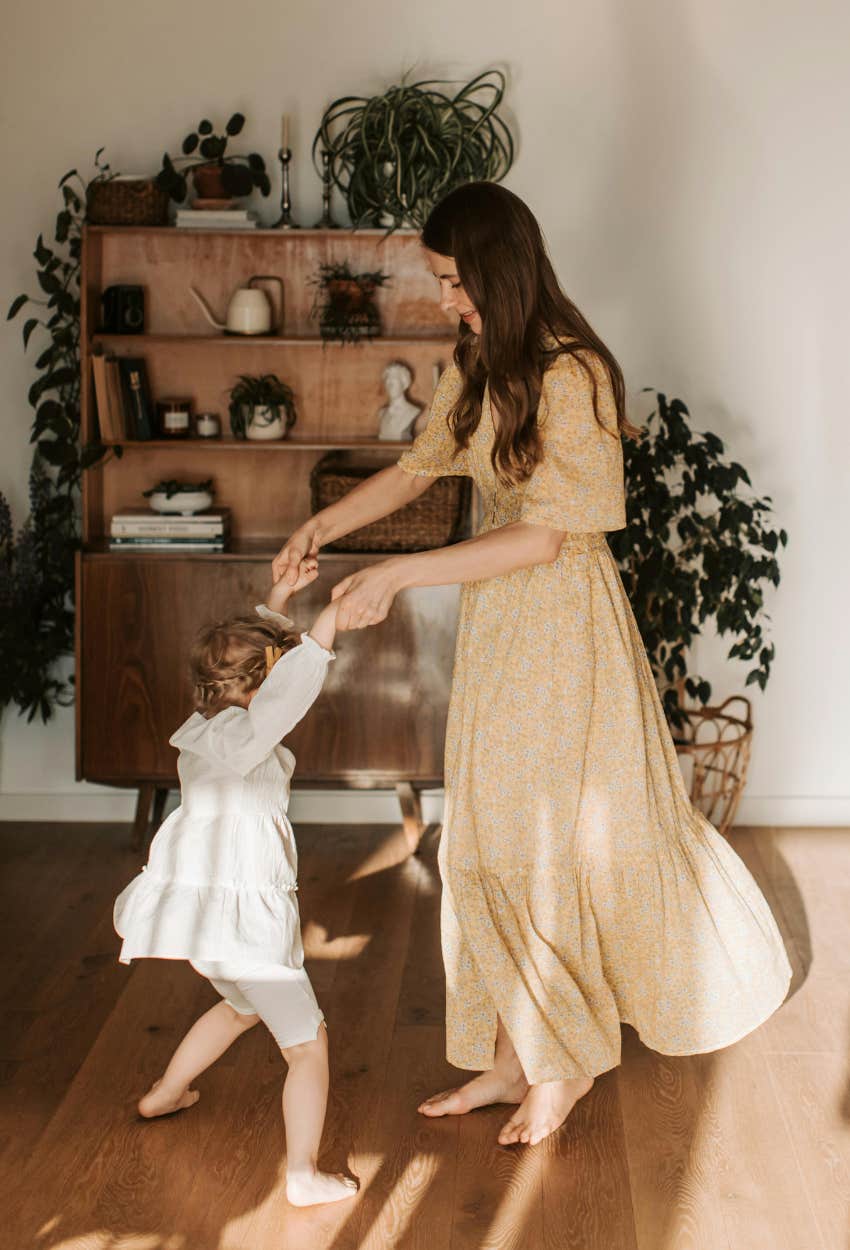People Who Have This One Specific Hobby Are Happier, Healthier, & Smarter, Says Science
Plus, it's downright fun.
 Thaís Sarmento | Pexels
Thaís Sarmento | Pexels I'm not a dancer, but I've danced my whole life. I took dance lessons, did musicals in school, and throughout my life have taken dance classes. I am not, however, a good dancer, but I do it anyway because it makes me feel good to move my body, and science backs me up. People who dance are happier, healthier, and smarter. It's just facts.
In a piece for Elite Daily, writer Alexa Mellardo said, "Dancing is not just a hobby or passion — it's a lifestyle. From tiny tutus to the big leagues, we've danced our hearts out on stage in gorgeous leotards and costumes; we've dealt with all sorts of blisters on our feet. The irreplaceable memories that have gotten us to where we are today show that the battle scars are well worth it.
Here's why science says people who dance as a hobby are happier, healthier, and smarter:
1. It's an extreme workout.
From Zumba to Barre, there's a reason why so many exercise classes incorporate dance fundamentals into their workouts, and it's not just because it's so much fun that it distracts you from the fact that you are actually exercising. Dancing gets the heart pumping! It's as simple as that.
 Yan Krukau | Pexels
Yan Krukau | Pexels
"All the movements are different, as opposed to a treadmill or elliptical machine where you repeat the same movement," Dr. Beth Shubin Stein, an orthopedic surgeon at the Hospital for Special Surgery in New York, told ABC News. "So you use and build up different groups of muscles." Ballet Fusion founder, Rhea Sheedy, agrees. She told Women's Health, "Dance workouts build strength in your muscles, especially the legs, hips, and core, which enables us to stay healthy, prevent osteoporosis, while reducing the chance of injury."
As if fun and a fab workout weren't enough of a reason to replace your tired workout routine with some dance classes, a small study published in 2020 found that for aging adults, incorporating dance into their regular physical activity improved balance and reduced the risk of falls by 31 percent.
2. People who grew up dancing are less stressed.
In a Swedish study involving 112 female teens, researchers found that teens who included dancing in their weekly routines saw positive results. All of the participants were dealing with back and neck pain, anxiety, depression, or stress. Half of the girls were involved in dance classes each week, while the other half were not. The girls with dance in their lives saw improvement in their mental health and also reported experiencing a mood boost.
"According to these results, despite problems such as stress and other potential challenges in being an adolescent girl, dance can result in high adherence and positive experience for the participants," said the study's lead author, Anna Dubert. "This might contribute to sustained healthy habits."
 RDNE Stock project | Pexels
RDNE Stock project | Pexels
A systematic review published in 2024 found that for adults between 17 and 54, dance was "more effective than other physical activities at improving cognitive functions such as memory and also reducing stress and depressive symptoms." For individuals over 55, dance had the most positive impact on cognitive health in general, including memory, verbal fluency, and creating an overall sense of competence. Harvard Medical School reported that researchers are beginning to explore how dance, combined with specific types of music, is being used in the treatment of Parkinson's because of the impact the activity has on brain health in general.
3. It makes you happier.
 Vlada Karpovich | Pexels
Vlada Karpovich | Pexels
A University of London study found that dance causes the brain to release mood-lifting neurotransmitters within brain cells that spur the growth of new neurons and new cell connections, literally making minds more supple. For the study, researchers assigned patients with anxiety disorders to spend time in four therapeutic settings: a modern-dance class, an exercise class, a music class, or a math class. Only the dance class significantly reduced anxiety.
In another study from the University of Wolverhampton, participants in modern-dance classes experienced short-term mood boosts, suggesting that the sense of achievement and well-being that comes from expanding and perfecting one's movement repertoire can carry over into other areas of life.
While all these studies come to the same conclusion, that dancing is a huge mood boost, the conscious club put it into the simplest terms. "Dancing, as a form of physical exercise, releases endorphins. However, what’s remarkable is that dancing triggers the release of much more endorphin than any other known exercise. This is because dancing and music also trigger the nucleus accumbens, our brain’s pleasure center." It's also, as they noted, a bonding experience. Whether you're dancing in a class, at a club, or with a partner, that interaction and bonding over a shared activity is a joyful and happy experience that also contributes to the release of those same endorphins.
So, even if you aren't very good (like me) at dancing, do it anyway. Take a class even if you think you'll be terrible; it will do so much for you, and more.
Christine Schoenwald is a writer and performer. She's had articles in The Los Angeles Times, Salon, and Woman's Day. Visit her website or her Instagram.

